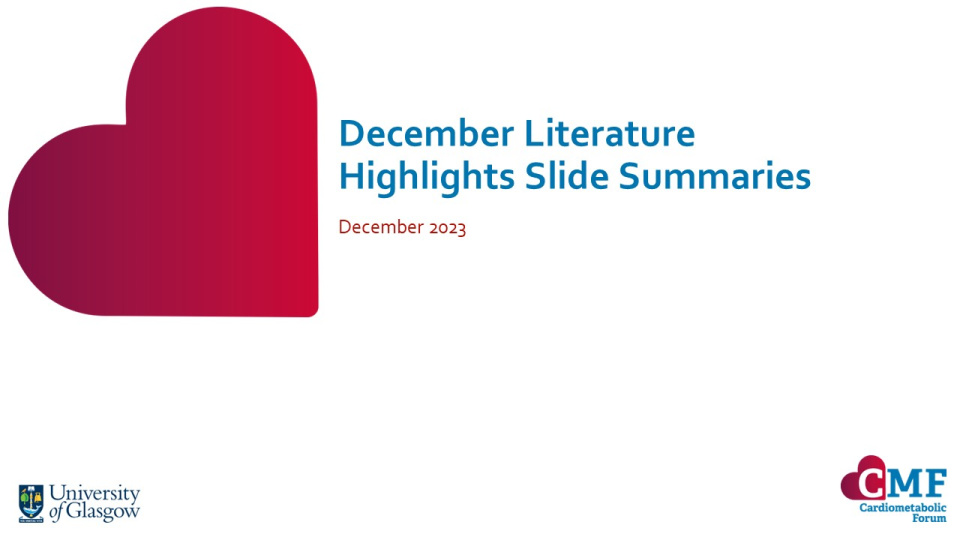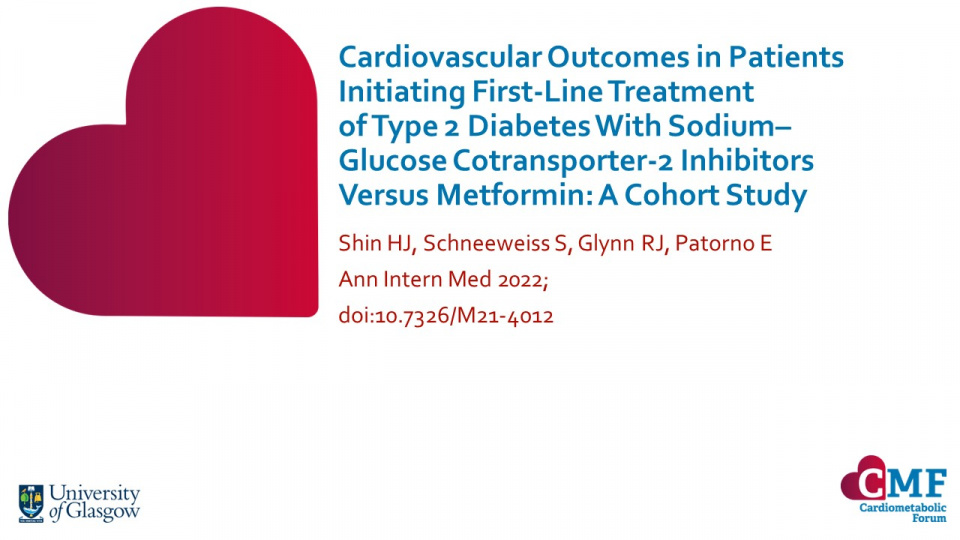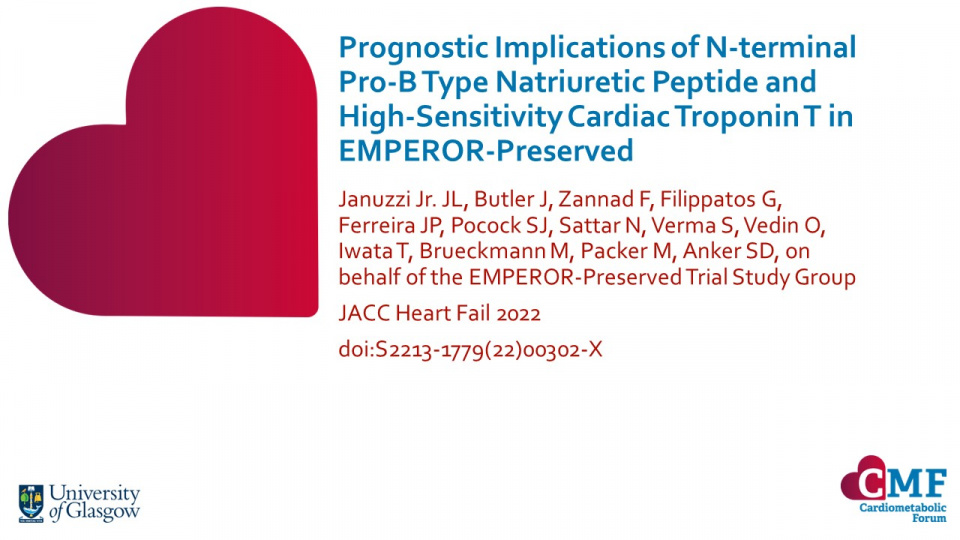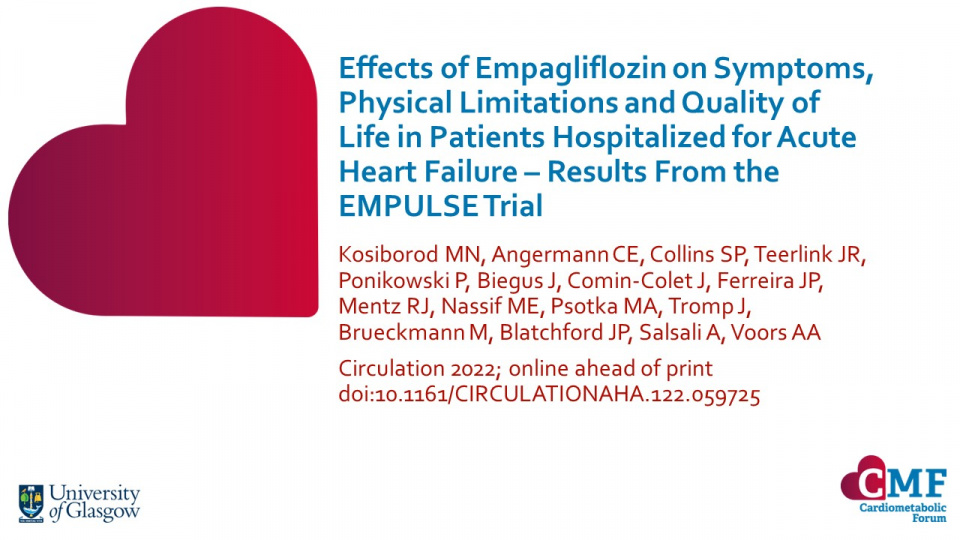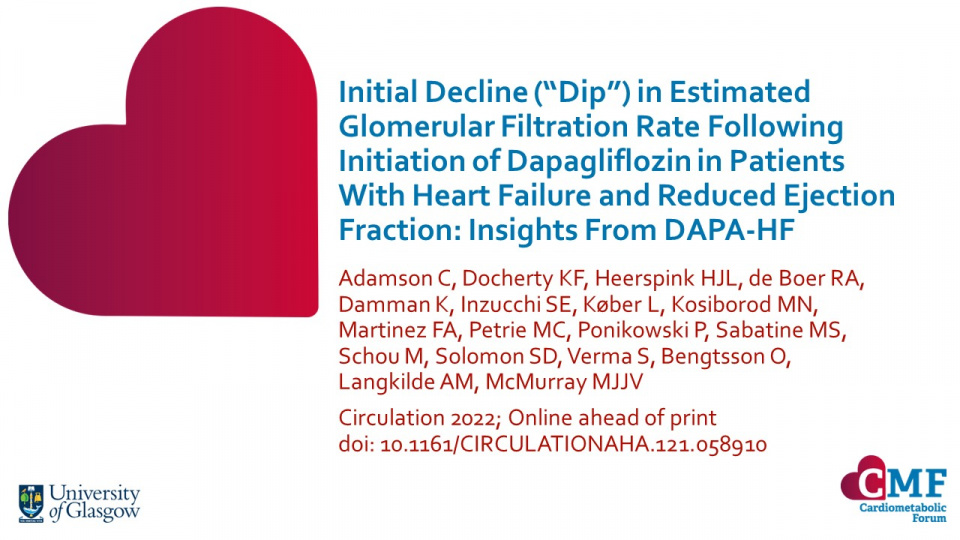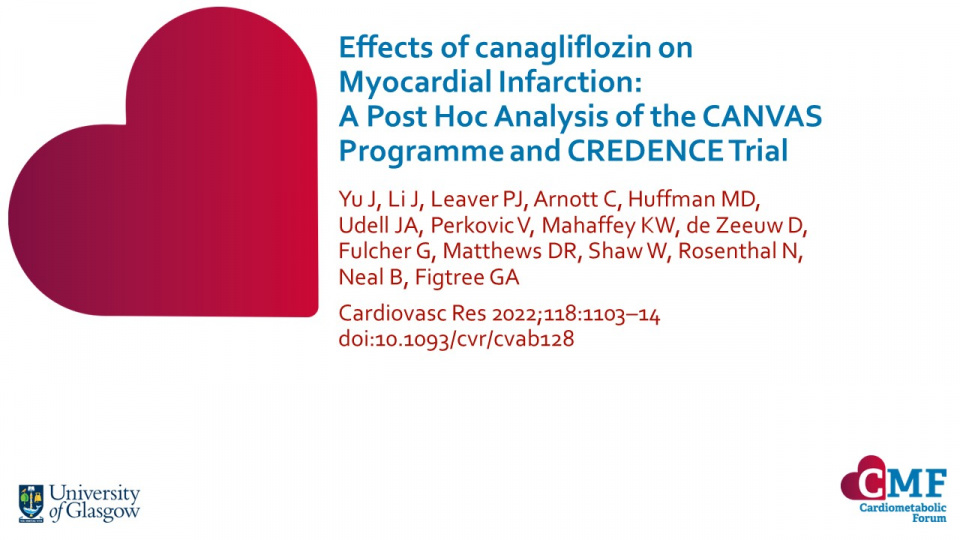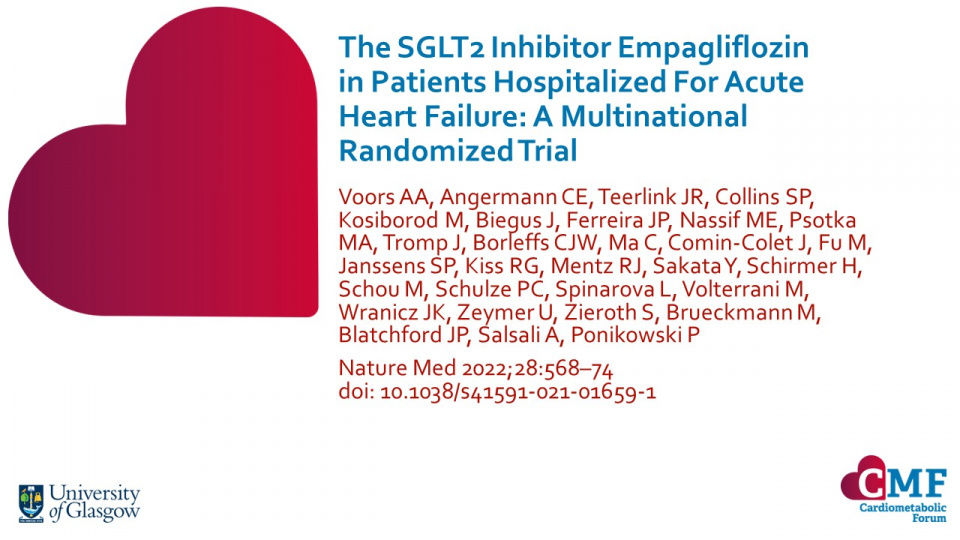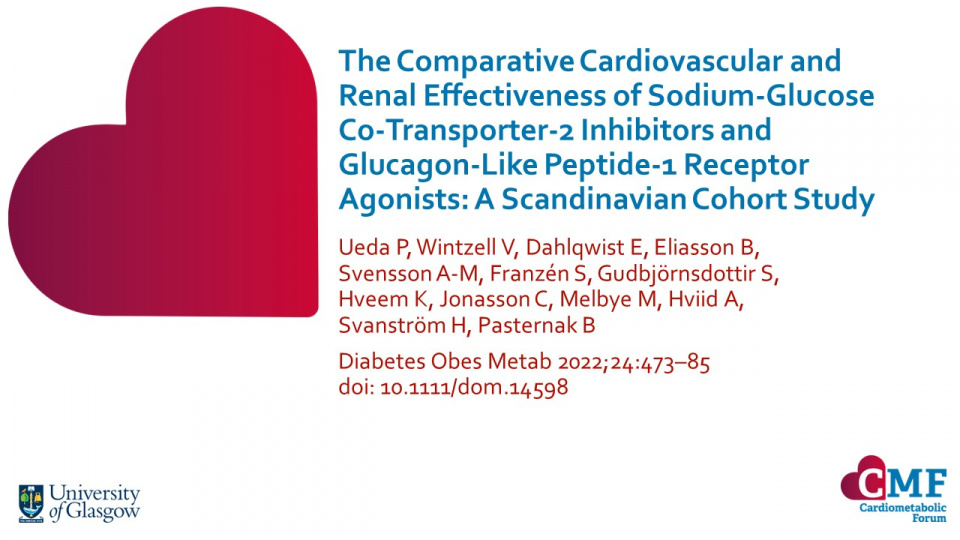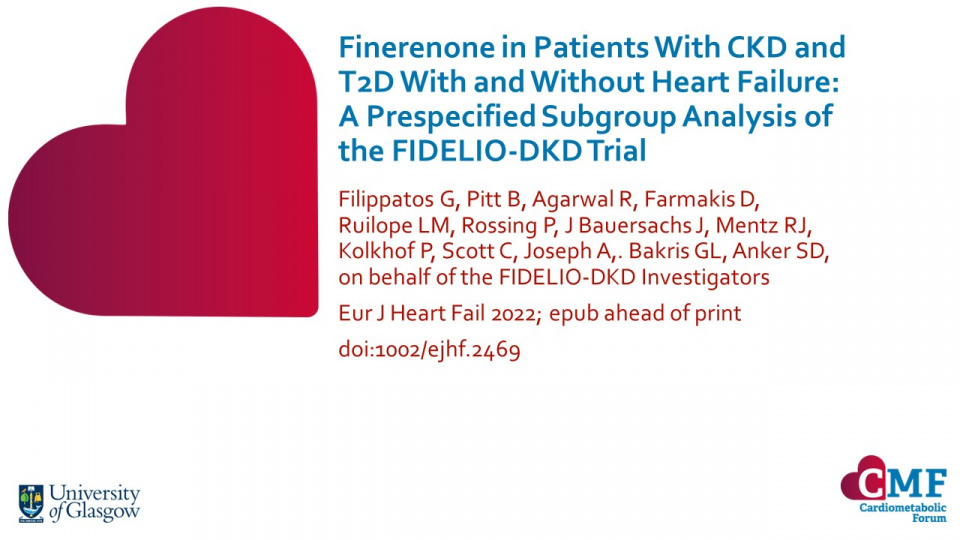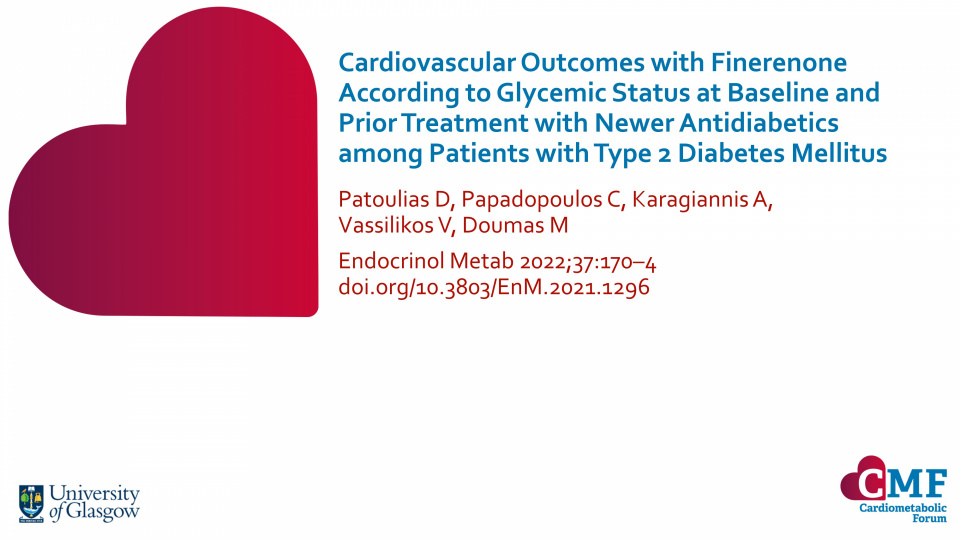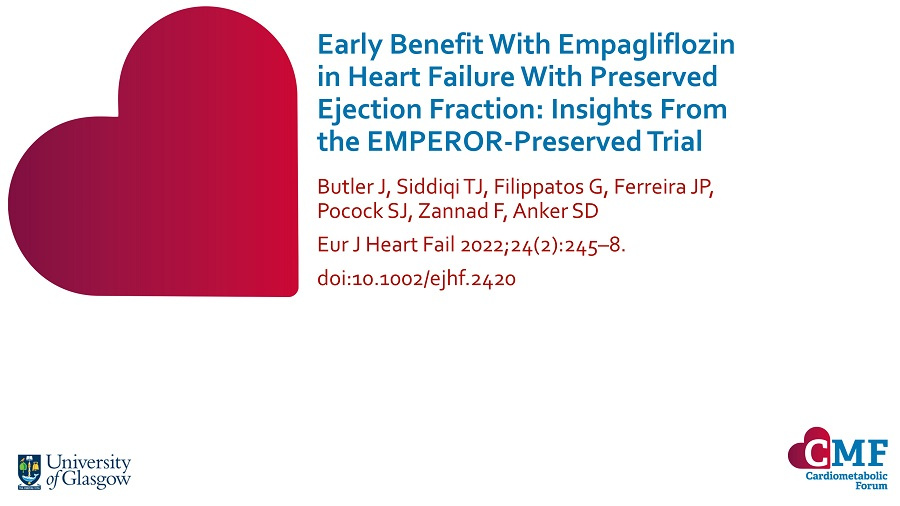Publications
Stay up to date with our literature reviews which are curated by experts to feature the most important publications released each month. Explore our publications for access to concise summary slides for your own use.
Cardiovascular Outcomes in Patients Initiating First-Line Treatment of Type 2 Diabetes With Sodium–Glucose Cotransporter-2 Inhibitors Versus Metformin: A Cohort Study
Ann Intern Med 2022; doi:10.7326/M21-4012
This cohort study found that those initiating a SGLT2i as their first-line treatment for T2D showed a similar risk for a composite outcome of MI, stroke, and mortality – and lower risk for a composite of hospitalisation for heart failure (HHF) and mortality. Compared with those receiving metformin as their first-line treatment, the SGLT2i safety profile was similar, except for an increased risk of genital infections.
Prognostic Implications of N-terminal Pro-B Type Natriuretic Peptide and High-Sensitivity Cardiac Troponin T in EMPEROR-Preserved
JACC Heart Fail 2022 doi:S2213-1779(22)00302-X
This planned analysis from EMPEROR-Preserved provides strong evidence for both N-terminal pro-B type natriuretic peptide (NT-proBNP) and high-sensitivity cardiac troponin T (hs-cTnT) as important disease markers and prognostic indicators in people with heart failure with preserved ejection fraction (HFpEF).
Evaluation and management of individuals with HFpEF can be challenging. NT-proBNP and hs-cTnT are biomarkers with well-established prognostic role across the range of ejection fraction in heart failure. As such, it is possible that patient baseline values could be used to identify those suitable for treatment. However, ambiguity has led to confusion about pharmacologic management, and the role of biomarkers.
Effects of Empagliflozin on Symptoms, Physical Limitations and Quality of Life in Patients Hospitalized for Acute Heart Failure – Results From the EMPULSE Trial
Circulation 2022; online ahead of print doi:10.1161/CIRCULATIONAHA.122.059725
This post hoc and prespecified analysis of the EMPULSE trial found that initiation of empagliflozin in patients hospitalised for acute heart failure (AHF) produced clinical benefit regardless of the degree of symptomatic impairment at baseline. Empagliflozin also improved symptoms, physical limitations, and quality of life – with benefits seen as early as 15 days and maintained through 90 days.
Initial Decline (“Dip”) in Estimated Glomerular Filtration Rate Following Initiation of Dapagliflozin in Patients With Heart Failure and Reduced Ejection Fraction: Insights From DAPA-HF
Circulation 2022; Online ahead of print doi: 10.1161/CIRCULATIONAHA.121.058910
The results of this subgroup analysis from DAPA-HF show that – although estimated glomerular filtration rate (eGFR) decline is generally associated with poorer prognosis in most situations – an initial dip with a sodium-glucose co-transporter-2 inhibitor (SGLT2i) may be associated with slower rate of decline in kidney function.
Effects of canagliflozin on Myocardial Infarction: A Post Hoc Analysis of the CANVAS Programme and CREDENCE Trial
Cardiovasc Res 2022;118:1103–14
Yu et al. report that canagliflozin is not associated with a reduction in overall myocardial infarction in the pooled CANVAS and CREDENCE population. The CANVAS cohort found a possible differential effect on ST-elevation myocardial infarction (STEMI) and non-STEMI warranting further investigation.
The SGLT2 Inhibitor Empagliflozin in Patients Hospitalized For Acute Heart Failure: A Multinational Randomized Trial
Nature Med 2022;28:568–74 doi: 10.1038/s41591-021-01659-1
Empagliflozin is well tolerated in patients hospitalised for acute heart failure, resulting in significant clinical benefit 90 days after treatment initiation.
The Comparative Cardiovascular and Renal Effectiveness of Sodium-Glucose Co-Transporter-2 Inhibitors and Glucagon-Like Peptide-1 Receptor Agonists: A Scandinavian Cohort Study
Diabetes Obes Metab 2022;24:473–85 doi: 10.1111/dom.14598
In this study by Ueda et al., SGLT2 inhibitors were associated with a similar risk of heart failure and a lower risk of serious renal events compared with GLP-1 receptor agonist,s and the use of GLP-1 receptor agonists was associated with a slightly lower risk of MACE compared with SGLT2 inhibitors.
Finerenone in patients with CKD and T2D with and without heart failure: A prespecified subgroup analysis of the FIDELIO-DKD trial
PMID: 35239204 DOI: 10.1002/ejhf.2469
This subgroup analysis of the FIDELIO-DKD trial discovered that finerenone improved cardiorenal outcome in patients with chronic kidney disease and type 2 diabetes.
Cardiovascular Outcomes with Finerenone According to Glycemic Status at Baseline and Prior Treatment with Newer Antidiabetics among Patients with Type 2 Diabetes Mellitus
Endocrinol Metab 2022;37:170–4; doi.org/10.3803/EnM.2021.1296
Finerenone induced a 13% risk reduction in MACE (a composite of death from CV causes, nonfatal myocardial infarction, nonfatal stroke, or hospitalisation for heart failure) regardless of prior glycaemia. There was no difference in finerenone-derived MACE benefits whether patients were on baseline SGLT2i or GLP-1RA or not.
Early Benefit With Empagliflozin in Heart Failure With Preserved Ejection Fraction: Insights From the EMPEROR-Preserved Trial
Eur J Heart Fail 2022;24(2):245–8. doi:10.1002/ejhf.2420
Results reinforce sustained clinical, health status and quality of life benefits with empagliflozin in patients with HF‑pEF, and underscore the need for timely initiation of therapy.

